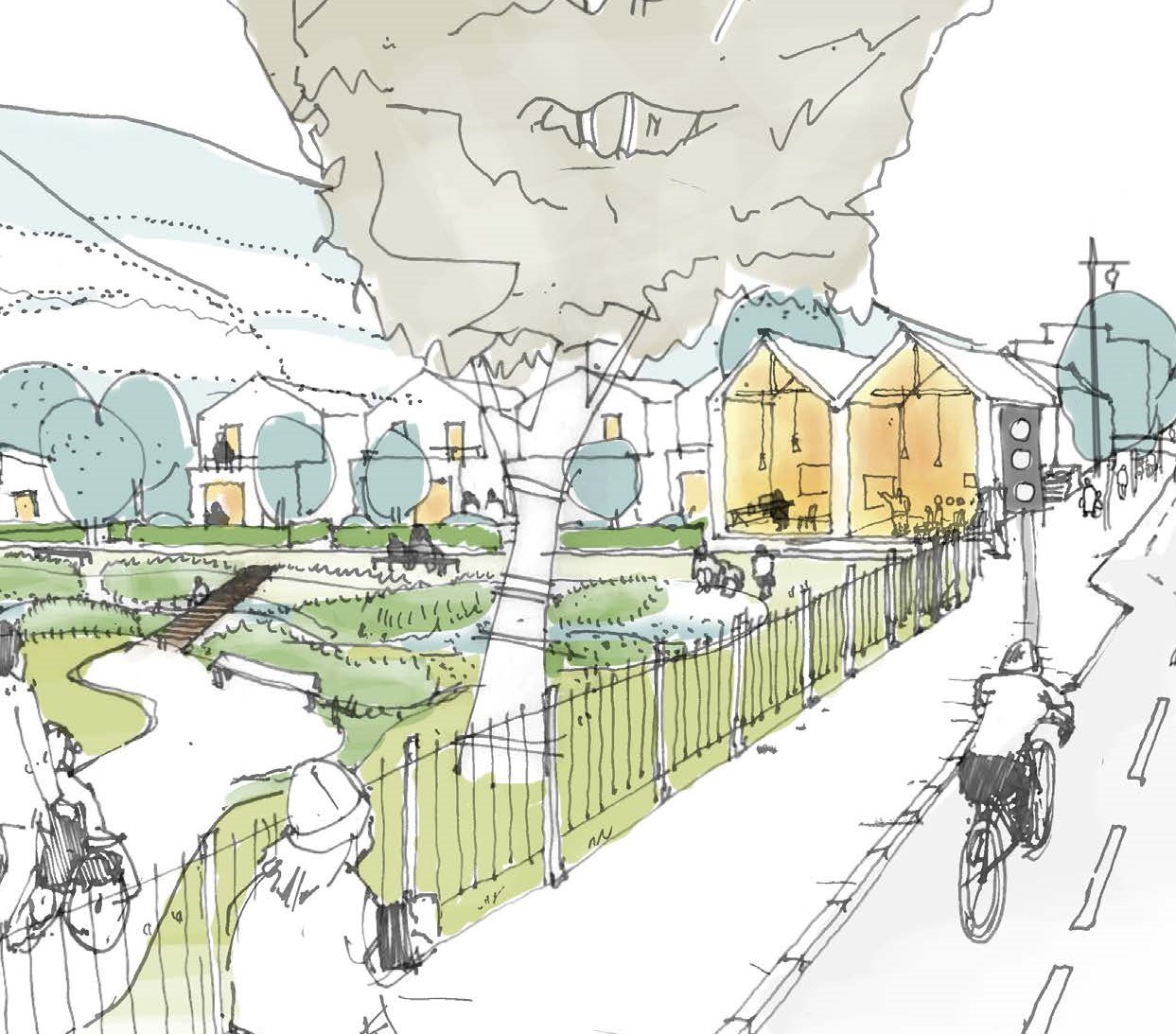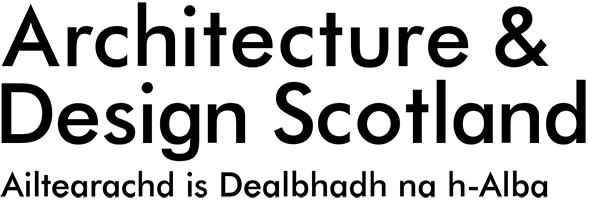Alva Pathfinder Project: reflections one year on

Whilst work is ongoing in Alva, we have been looking back to understand the lessons we can learn from using a collaborative whole-place approach to regeneration.
Our reflections
We wanted to understand the impacts, benefits and wider lessons from this pilot project in Alva, which tests the Place Principle in action.
To do this, we interviewed one of the key clients at Clackmannanshire Council and performed analysis and evaluation with our team at Architecture and Design Scotland.
This blog explores:
- how the Place Principle can maximise impacts and investments
- the benefits of a whole-place collaborative approach
- how Architecture and Design Scotland supports a whole-place approach
- what local authorities will need to consider
- the strategic outcomes in Alva
- project update
All quotes from our client at Clackmannanshire Council
"The start [of the project] was small – discreet and focussed – but then we realised, ‘we can’t think about this, without thinking about that; and we can’t think about this group without thinking about them’."
How the Place Principle can maximise impacts and investments
This project started by looking to develop a pilot scheme for older people in Alva (specifically on the Glentana Mill site), but expanded to look more broadly at what the intended site could deliver. Instead of looking to solve one issue, we asked if there could be the potential to address a wide range of issues - including housing for families, a vibrant town centre and better streetscapes.
In order to capture all the different possibilities for the town, Architecture and Design Scotland selected a number of tools and techniques appropriate to the place and situation. There was a useful partnership with Scottish Futures Trust, who were in place to provide follow-through support relating to the delivery.
"The catalyst for saying we need to do more than just focus on the site, was a site visit to Alva [with council, planning, housing, Scottish Futures Trust and Architecture and Design Scotland] to walk around the town – that’s where the wider town approach came from."
Benefits of a whole-place collaborative approach
In Alva, the process was an exercise in opening up engagement with other services and sectors, both national (Scottish Futures Trust / Architecture and Design Scotland) and local (Health Services). This partnership working, and “having genuine community engagement, allows us to bring the community along on the journey rather than going to them with a pre-determined idea.”
“The Council are on a journey to a place based approach, and more cross service approach – the exercise of working in Alva has been good in terms of breaking down barriers, and to [let others in the local authority] see that this approach can bring a lot more than the council trying to do everything on its own.”
How did Architecture and Design Scotland support a whole-place approach?
Below is a summary of the ways we helped to establish a whole-place collaborative approach in Alva. It also reflects on some of the benefits of working with our team at Architecture and Design Scotland, some lessons we have learned along the way, as well as the different tools and approaches used.
We encourage and support discussions at an early stage, to help determine the perimeters of a project – both physically in terms of site and surroundings, but also if it needs to open up to a wider range of partners and stakeholders. We often find it useful to physically walk the site in question to get conversations moving.
We can share examples, help to break down barriers across services and demonstrate how a local authority or client can achieve more by collaborating with others.
We consider and advise on the best ways to engage, using a number of tools and techniques. It is important to acknowledge that different engagement methods require differing degrees of time, effort and energy, which needs early consideration. These include the following:
Visioning
We advise and signpost different approaches and techniques to help capture opportunities and possibilities. These include community consultations, workshops, asset mapping sessions, and visualising scenarios.
Place Standard
This is an easy-to-set-up tool, which can reach a wide group of people, quickly. It can provide a really useful snapshot of key issues and priorities in the community. For more information click here.
Asset mapping workshop
A really useful exercise in facilitation, which seeks to identify assets and opportunities in a whole place.
Design advice and facilitation skills
There is much value in a drawing, picture or image to help to get people more engaged and to help visualise the potential for change. There are a number of ways to do this (for example by creating personas to help inform concept illustrations, or visualising scenarios) to provide a useful tool as part of the wider consultation process.
“[Architecture and Design Scotland] has given us the ideas of what we could look at and how we could look at it, and backing it up with the right resources at the right time. The words and ideas have been supported by actions and expertise.”
What will local authorities need to consider?
Below are some reflections that we suggest local authorities would need to consider before embarking on a similar project:
It is important to align different partners across departments, who can provide additional support and resources to make it happen. This may include funding or delivery partners. It is worth considering engaging with services beyond the council, for example, would it be worth speaking to health professionals if there are impacts on local services?
It is really insightful to engage with a wide range of people, so it is worth planning for their involvement. For example, involving young people via a youth organisation can be a good route. Older people can be more difficult to reach as they often don’t have access to email, which would need added consideration. In person face-to-face engagements can sometimes be more age inclusive.
Some of the tools and techniques outlined above can be time and resource heavy. Would you have in-house expertise or the ability to bring in external consultants to support the process?
Where time and resources may be short, there are other ways to engage people, for example, focus group workshops (though external support and expertise may benefit this process too). Getting some design input into creating visualisations may be necessary where in-house skills are not available.
It is up to each local authority to drive forward a plan of how investments are made, based on the information gathered. This will also involve managing the message about what happens next, and ongoing engagement with the community.
What were the strategic outcomes in Alva?
Below are three key outcomes from our involvement in this project:
- a widened scope of potential uses for the Glentana Mill site – looking at a mix of flexible spaces for community use
- the partial reuse of Glentana Mill is being considered, rather than demolished
- the Council are expanding the scope of support to look at the whole town
“We have gone way beyond the potential of just developing the site… and have a level of analysis of problems and opportunities in the settlement [we] wouldn’t have gotten otherwise. We have the tools in the report to go forward and make decisions based on the right analysis.”
Project update
It has been a year since we published the report and associated outputs from our involvement in the Alva Pathfinder project. Since then, the streetscaping works have largely been completed, which has delivered on the action points from the report. Additionally, more work has been done to develop a focussed site brief. Engagement with the community and elected members is ongoing.
“The Whole Place Plan is providing the Council with a context and vehicle informing the next stages of design and development, [as well as] further engagement with community representatives and stakeholders.”
